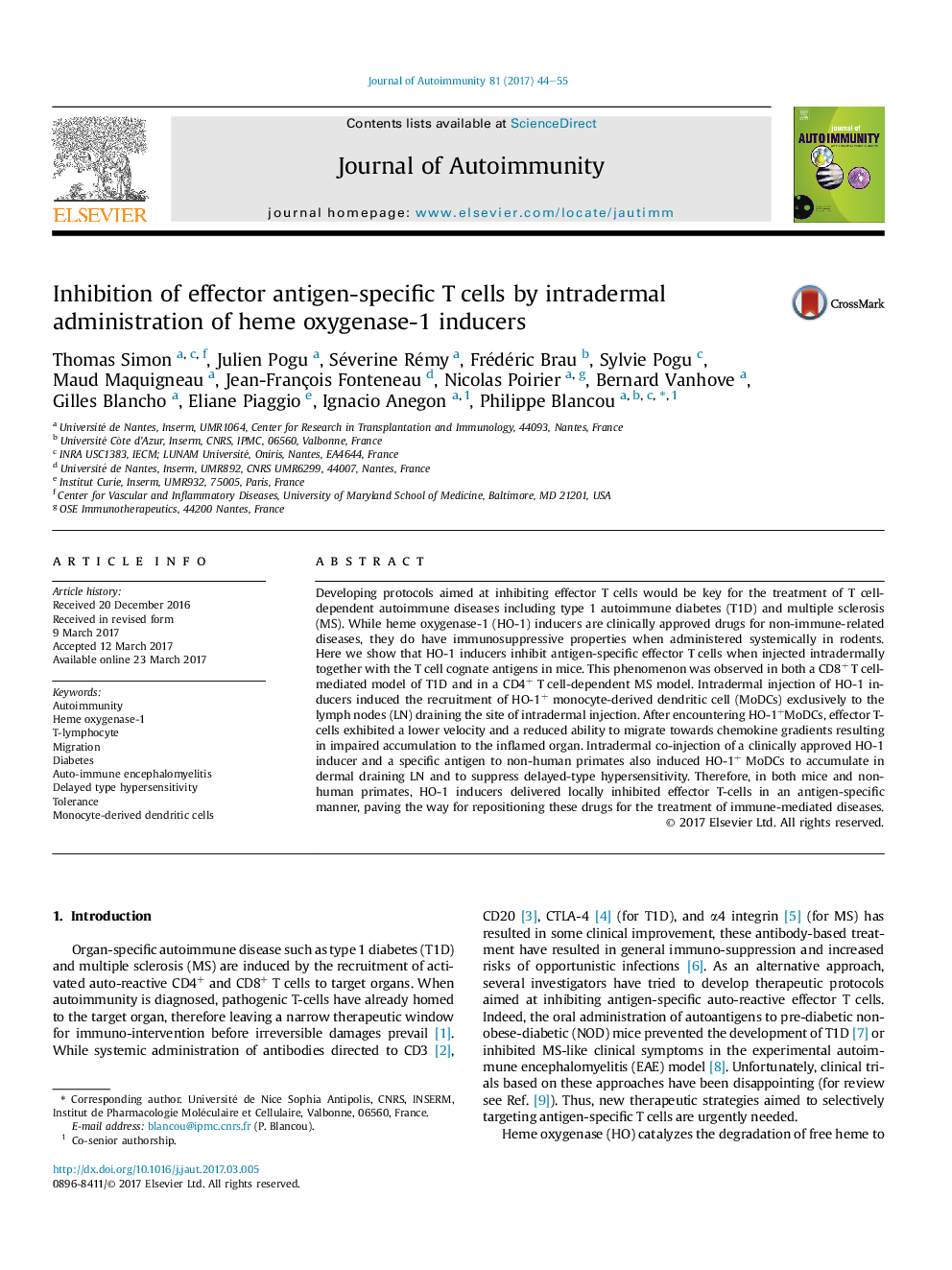| Article ID | Journal | Published Year | Pages | File Type |
|---|---|---|---|---|
| 5667814 | Journal of Autoimmunity | 2017 | 12 Pages |
â¢I.d. injection of HO-1 inducer and antigen inhibits antigen-specific effector T cells.â¢MoDC can inhibit effector T-cells showing a broader role than previously appreciated.â¢Clinically approved HO-1 inducer inhibits antigen-specific T cells in primates.
Developing protocols aimed at inhibiting effector T cells would be key for the treatment of T cell-dependent autoimmune diseases including type 1 autoimmune diabetes (T1D) and multiple sclerosis (MS). While heme oxygenase-1 (HO-1) inducers are clinically approved drugs for non-immune-related diseases, they do have immunosuppressive properties when administered systemically in rodents. Here we show that HO-1 inducers inhibit antigen-specific effector T cells when injected intradermally together with the T cell cognate antigens in mice. This phenomenon was observed in both a CD8+ T cell-mediated model of T1D and in a CD4+ T cell-dependent MS model. Intradermal injection of HO-1 inducers induced the recruitment of HO-1+ monocyte-derived dendritic cell (MoDCs) exclusively to the lymph nodes (LN) draining the site of intradermal injection. After encountering HO-1+MoDCs, effector T-cells exhibited a lower velocity and a reduced ability to migrate towards chemokine gradients resulting in impaired accumulation to the inflamed organ. Intradermal co-injection of a clinically approved HO-1 inducer and a specific antigen to non-human primates also induced HO-1+ MoDCs to accumulate in dermal draining LN and to suppress delayed-type hypersensitivity. Therefore, in both mice and non-human primates, HO-1 inducers delivered locally inhibited effector T-cells in an antigen-specific manner, paving the way for repositioning these drugs for the treatment of immune-mediated diseases.
